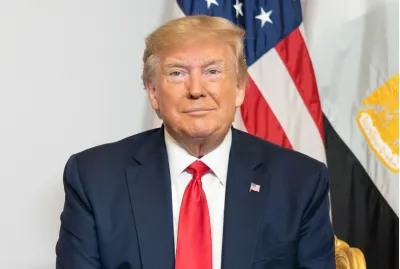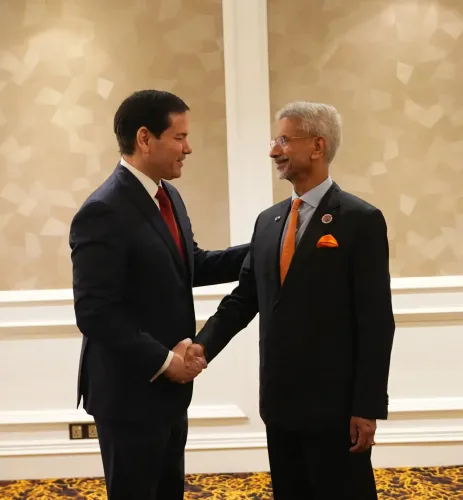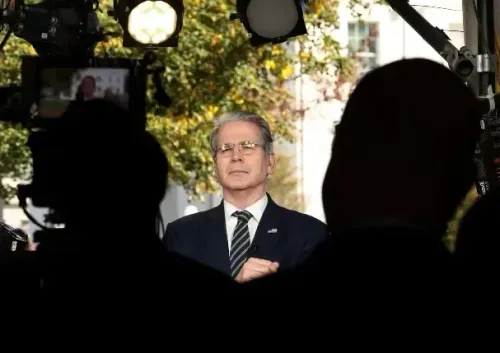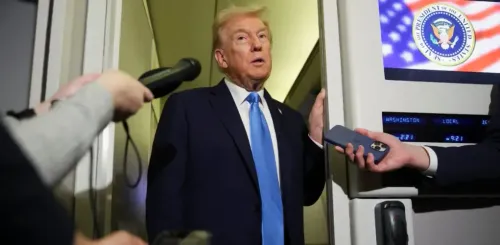Will Trump Address Taiwan in His Upcoming Meetings with Xi?

Synopsis
Key Takeaways
- Trump's Asia trip includes discussions on Taiwan.
- Taiwan remains a sensitive issue in US-China diplomacy.
- China views Taiwan as part of its territory.
- The US supports Taiwan under the Taiwan Relations Act.
- Diplomatic relations hinge on the 'One China' policy.
Washington, Oct 26 (NationPress) As US President Donald Trump begins a five-day tour of Asia, which is anticipated to feature a significant meeting with Chinese President Xi Jinping, he displayed caution when questioned about one of the most delicate topics in US-China relations—Taiwan.
While speaking to journalists aboard Air Force One during his journey to Asia, Trump acknowledged that Taiwan is likely to be a subject of discussion in his talks with Xi, expected to occur on the sidelines of the upcoming APEC summit in South Korea next week. Yet, he provided limited details, adopting a notably restrained stance on the issue.
When asked if he might contemplate altering Washington’s longstanding policy regarding Taiwan, Trump responded succinctly, “I don’t want to discuss that right now. I don’t want to complicate things. The trip is already complex enough.”
In response to inquiries about his previous statements suggesting that China does not plan to invade Taiwan, Trump added, “It would be extremely risky for China to take any action against Taiwan.” His brief remarks underscored the geopolitical sensitivity surrounding the Taiwan issue, which continues to challenge US-China diplomatic relations.
Beijing regards self-governing Taiwan as part of its territory, despite never having exercised control over it, and has pledged to reunify the island, even by force if necessary. In recent years, China has heightened its military, economic, and diplomatic pressure on Taipei, raising alarm among Western allies.
Conversely, the United States maintains a strong yet unofficial relationship with Taiwan and is legally bound under the Taiwan Relations Act to offer the island defensive support. This arrangement, while integral to Washington’s Indo-Pacific strategy, remains a persistent source of tension with Beijing, which perceives any US support for Taipei as an intrusion into its domestic matters.
According to the US’s “One China” policy, Washington recognizes Beijing’s stance that Taiwan is part of China but refrains from officially endorsing that claim. The US also asserts that it does not support Taiwan’s independence.









